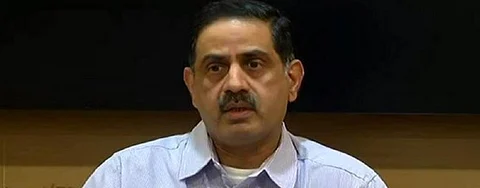

The Union Ministry of Health and Family Welfare on March 17, 2020, decided to allow ‘high quality’ private labs to test for novel coronavirus disease (COVID-19).
Though private labs had been permitted, the government’s own labs involved in testing remained under-utilised, Indian Council of Medical Research (ICMR) Director General, Balram Bhargava, said.
“Many private labs approached us saying they would want to serve the nation during this time, so we decided to take them on board,” he said. Bhargava was replying to a question on the need to enrol private labs even though the government’s labs have not been getting as many samples every day as much as they are capable of testing.
Bhargava ‘appealed’ the private labs to conduct these tests for free since it was these labs who approached the government to lend a hand. He, however, clarified that this was merely an appeal and not mandatory.
Neither is the pricing of tests capped nor the government would bear the cost of these tests done at private labs. Currently, a first screening costs Rs 1,500 and confirmatory screening, Rs 3,000, as detailed in ministry guidelines. Government labs are doing testing at no cost for patients.
The only limitation for these ‘high quality’ private labs, including the ones that have National Accreditation Board for Testing and Calibration Laboratories quality accreditation is, that they could only do testing once they have procured ‘probes’, ‘reagents’ and ‘primers’ for testing from ICMR. These three form important components of a testing kit.
Who would be tested?
The ICMR yet again reiterated that only those who have an international travel history or are contacts of a confirmed case and display COVID-19 symptoms would be eligible for a test.
What if a clinician finds a patient who doesn’t satisfy the criteria of international travel or being a contact of a confirmed case and yet has a serious respiratory disease with COVID-19 like symptoms on which no available drug has shown results?
“Such a patient would not be eligible for testing because we don’t want to do indiscriminate testing,” R Gangakhedkar, head of Delhi-ICMR’s epidemiology unit, said.
This is significant because WHO’s emergencies programme director Mike Ryan, in a presser last week, had said a clinician should be allowed to use his judgment as many cases may otherwise remain undetected. Even several experts in India have been saying that the government should expand testing criteria on similar premise.
However, the government believes since ‘community transmission’ is not happening in India, such an expansion of testing criteria is not required. At present, there is only ‘local transmission’.
Local transmission means a phase in which only those appear as confirmed cases who have travelled from disease-affected nations or are their contacts. Community transmission is a phase next to local transmission when even those start testing positive who satisfy neither of the conditions of local transmission.
ICMR says that it ‘randomly tested’ people who had severe acute respiratory illness and who had no travel history. Twenty or less samples in the government’s 51 labs were tested in February and March. About 500 of them tested negative while the result of others is awaited.
Since all these 500 tested negative, it believes there is no community transmission. And, therefore, random testing, among people who have not travelled abroad but show respiratory diseases symptoms is not required.
However, the question remains whether a sample size of 20 per lab, and that too only from government hospitals, is bigger enough to come to a conclusion that testing criteria need not be opened up. Gangakhedkar said government labs would continue doing random sampling and till there is enough evidence of community transmission, there is no need of expanding the testing criteria.
Bhargava also said ICMR has submitted a riposte on the March 16 statement of World Health Organization’s Director General Tedros Ghebreyesus who said ‘test, test, test’ was only mantra to control this pandemic.
“He should have qualified that this was not for all countries and exceptions should have been made for those countries where there is no community transmission,” Bhargava said.
Labs to be scaled up
Till March 16, as many as 11,500 samples have been tested. From the existing number of 72, the government labs would be scaled up to 121 by the end of the week. On any given day, 8,000 samples can be tested per day by these labs but since the testing criteria is limited, these labs will not remain fully utilised.
Meanwhile, the total number of confirmed COVID-19 cases in India on March 17 were 137.